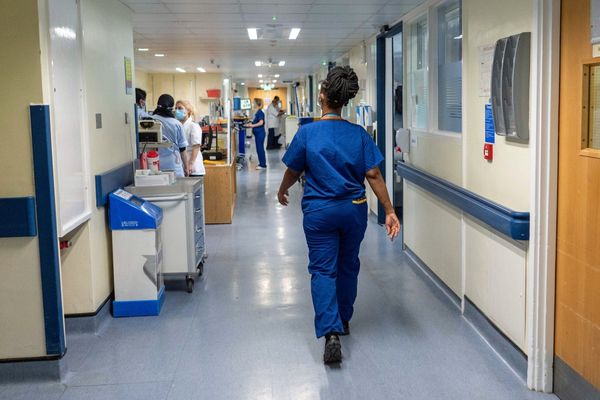People with certain health conditions could be eligible to claim as much as £627 per month from the Department of Work and Pensions (DWP).
Personal Independence Payments (PIP) can help with extra living costs if you have a long-term physical or mental health condition or disability which causes difficulty doing certain everyday tasks or getting around. The amount you get depends on how severe your condition is - however, you could get up to £627, so it is well worth checking if you could qualify, reported the Daily Record.
It comes as recent data for October 2022, from the DWP, shows a significant rise in the amount of people claiming for Psychiatric Disorders. These include conditions like anxiety, stress, depression and learning disorders. Overall, the number of people receiving PIP across the UK increased from 3,129,589 to 3,164,551 from September to October 2022 - a rise of 34,962 claimants.
READ MORE: Diabetes: Symptoms and warning signs on your skin that suggest high blood sugar
There are several main disability categories and a total of 547 other conditions fall under these umbrella terms. Here is the full list.
Disabling conditions and number of UK claimants - October 2022
These are the main disability categories, the umbrella terms under which a total of 547 other conditions fall. This list is only an overview of conditions, disorders and diseases and how the DWP lists the main disabilities being claimed for.
- Haematological Disease - 7,300
- Infectious disease - 9,897
- Malignant disease - 9,7426
- Metabolic disease - 4,667
- Psychiatric disorders - 1,166,695
- Neurological disease - 403,469
- Visual disease - 56,351
- Hearing disorders - 33,424
- Cardiovascular disease - 80,815
- Gastrointestinal disease - 27,840
- Diseases of the liver, gallbladder, biliary tract -11,328
- Skin disease - 20,835
- Musculoskeletal disease (general) - 635,450
- Musculoskeletal disease (regional) - 376,965
- Autoimmune disease (connective tissue disorders) - 17,596
- Genitourinary disease - 23,805
- Endocrine disease - 42,264
- Respiratory disease - 135,530
- Multisystem and extremes of age - 1,186
- Diseases of the immune system - 1,028
- Unknown or missing - 10,688
- Total - 3,1645,51
Five most commonly recorded disabling conditions
Psychiatric disorder - 37%of claims
- This includes mixed anxiety, stress, depressive and mood disorders, OCD and cognitive disorders.
Musculoskeletal disease (general) - 20% of claims
- This includes muscle or joint pain and arthritic conditions.
Neurological disease - 13% of claims
- This includes muscular dystrophy, epilepsy, headache, multiple sclerosis, neuropathy and other movement disorders.
Musculoskeletal disease (regional) - 12% of claims
- This includes neck, back, shoulders, elbow, wrists, hands, hip, knee and ankle pain.
Respiratory disease - 4% of claims
- This includes asthma, diseases of the upper respiratory tract, pulmonary fibrosis and cystic fibrosis.
Some 35% of all claims with entitlement to PIP at the end of October 2022 are in receipt of the highest level of award, with both daily living and mobility components received at the enhanced rate.
What is PIP?
Personal Independence Payment (PIP) can help with extra living costs if you have both: a long-term physical or mental health condition or disability and difficulty doing certain everyday tasks or getting around because of your condition. You can get PIP even if you’re working, have savings or are getting most other benefits.
Who is eligible for it?
You can get Personal Independence Payment (PIP) if all of the following apply to you:
- you’re 16 or over
- you have a long-term physical or mental health condition or disability
- you have difficulty doing certain everyday tasks or getting around
- you expect the difficulties to last for at least 12 months from when they started
You must also be under State Pension age if you’ve not received PIP before. If you’re over State Pension age, you can apply for Attendance Allowance instead. Or if you’ve received PIP before, you can still make a new claim if you were eligible for it in the year before you reached State Pension age.
Receive newsletters with the latest news, sport and what's on updates from the Liverpool ECHO by signing up here
READ NEXT:
Kate Middleton's Christmas present from Prince William sells out in minutes
Four digit code you never want to see on Royal Mail parcels
Paul O'Grady's family life including 'marriage of convenience' as grandson turns 16
I spent £15 in charity shops and got a new £74 Zara dress, bag and necklace







